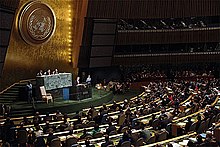
O international law[1] Private law is a legal field that deals with legal conflicts between different jurisdictions. Originating in the 19th century, it resolves issues involving international legal relations by determining which law[2] applies. Key concepts include connecting factors, nationality and the legal status of foreigners. The discipline aims to recognise legal acts from other countries, prevent legal injustices and ensure predictability in cross-border situations. Unlike law[3] Public international law is fundamentally a national legal structure that manages conflicts between different legal systems. Connecting factors such as domicile, nationality and location of property help determine the applicable laws. Critical considerations include respecting national sovereignty, public order and avoiding legal fraud. The field covers diverse scenarios involving international elements, providing mechanisms to harmonise legal interactions between different legal orders and jurisdictions.
This page or section does not represent a worldwide view of the subject. |
Private international law is the set of legal rulesIt is an autonomous political authority (a Nation state or one of your own province which has an autonomous legal order), with the aim of resolving conflicts of laws in space.

In simple terms, private international law is a set of rules of domestic law that tells the local judge which law - whether the law of the forum or a foreign law; or between two foreign laws - should be applied to a (generally private) case that has to do with more than one country.
The possibility of a country's judge ("forum judge") applying foreign law arises from the need to recognise facts and legal acts constituted in other countries and whose denial by the forum judge would cause injustice. For example, Brazilian private international law states that the law of the country in which the domiciled the person determines the rules about capacity: this specific rule was established by Brazilian law to avoid, among other problems, a person domiciled in a foreign country and recognised there as a of legal age will be considered a minor in the Brazil (if Brazilian and foreign law differ in this respect - a "conflict of laws"), which would be inconvenient and unfair. This is just one example of the set of rules that Brazil has created to avoid similar conflicts. Like Brazil, each national state has its own private international law, with rules that are not necessarily uniform.
In addition to the study of conflicts of laws in space, many jurists add to the scope of private international law the rules of domestic law relating to the conflict of jurisdictions, the nationality and the foreigner's legal status.